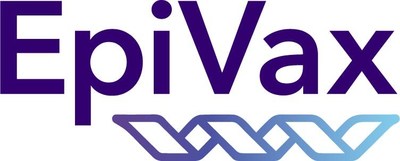
New Study Reveals Treg Epitope Role in Antibody Maturation: Implications for Therapeutics
Groundbreaking Discoveries in Antibody Maturation
EpiVax, Inc. has made significant strides in immunology with the announcement of a new study published in Frontiers in Immunology. This research sheds light on the critical role of peptides known as "Tregitopes" in the maturation process of antibodies during immune responses.
Traditionally, antibodies found within lymph nodes adapt through sequence changes to effectively target specific pathogens, such as the influenza virus. During this adaptation, the presence of Treg epitopes in antibodies appears to decrease, allowing B cells — the producers of antibodies — to expand and maintain their proliferation. The study titled "The Content of Regulatory T Cell Epitopes in Human Antibodies Decreases During Maturation" has been spearheaded by Dr. Andrés Gutiérrez and Dr. Annie De Groot from EpiVax. They utilized existing antibody sequence data to form a comprehensive understanding of how antibodies evolve over time.
Dr. Gutiérrez explains, "This research provides vital insights into the evolutionary dynamics of antibodies, highlighting not just how their affinity increases, but also how their interactions with the immune system change."
The discovery of Tregitopes in 2008 was transformative, altering the overall understanding of natural Treg cell functions in human and animal immunity. Their presence may help to explain some of the tolerogenic effects observed with intravenous immunoglobulin therapy (IVIG). Since their discovery, similar peptides have been identified in other natural proteins, indicating a more systemic relevance in immune regulation.
Earlier analyses of human antibody repertoires indicated a decrease in T cell epitopes with increasing antibody maturity. However, those studies did not specifically differentiate the roles of regulatory T cell (Treg) epitopes from effector T cell epitopes. In this recent investigation, researchers analyzed the antibody repertoires of four healthy human donors, assessing three distinct subsets of Treg epitopes: previously validated Treg epitopes, potentially tolerated T cell epitopes, and potentially effector T cell epitopes.
The findings were illuminating — as antibodies matured and exhibited a higher affinity for their target antigens, the quantity of Tregitopes steadily declined, whereas the amount of potential effector T cell epitopes increased. This suggests that the reduction of Tregitopes is a fundamental aspect of antibody evolution, a conclusion supported by in vitro analysis of both naturally occurring and modified Tregitope sequences.
Dr. De Groot elaborates, "This mechanism is likely relevant not only for immunity against pathogens but also for the development of autoantibodies in autoimmune diseases and in selecting therapeutic antibody candidates. Our findings contribute valuable knowledge to the realms of immune regulation and antibody design."
EpiVax and Its Mission
EpiVax is a frontrunner in preclinical assessments of immunogenicity and optimizing sequences for therapies and vaccines. The company collaborates with esteemed partners worldwide to enhance immunogenicity risk assessments, immune modulation, and rapid vaccine design strategies.
For more information, media inquiries can be directed to Sarah Moniz, Director of Business Development at EpiVax, via email at [email protected]

Topics Health)










【About Using Articles】
You can freely use the title and article content by linking to the page where the article is posted.
※ Images cannot be used.
【About Links】
Links are free to use.